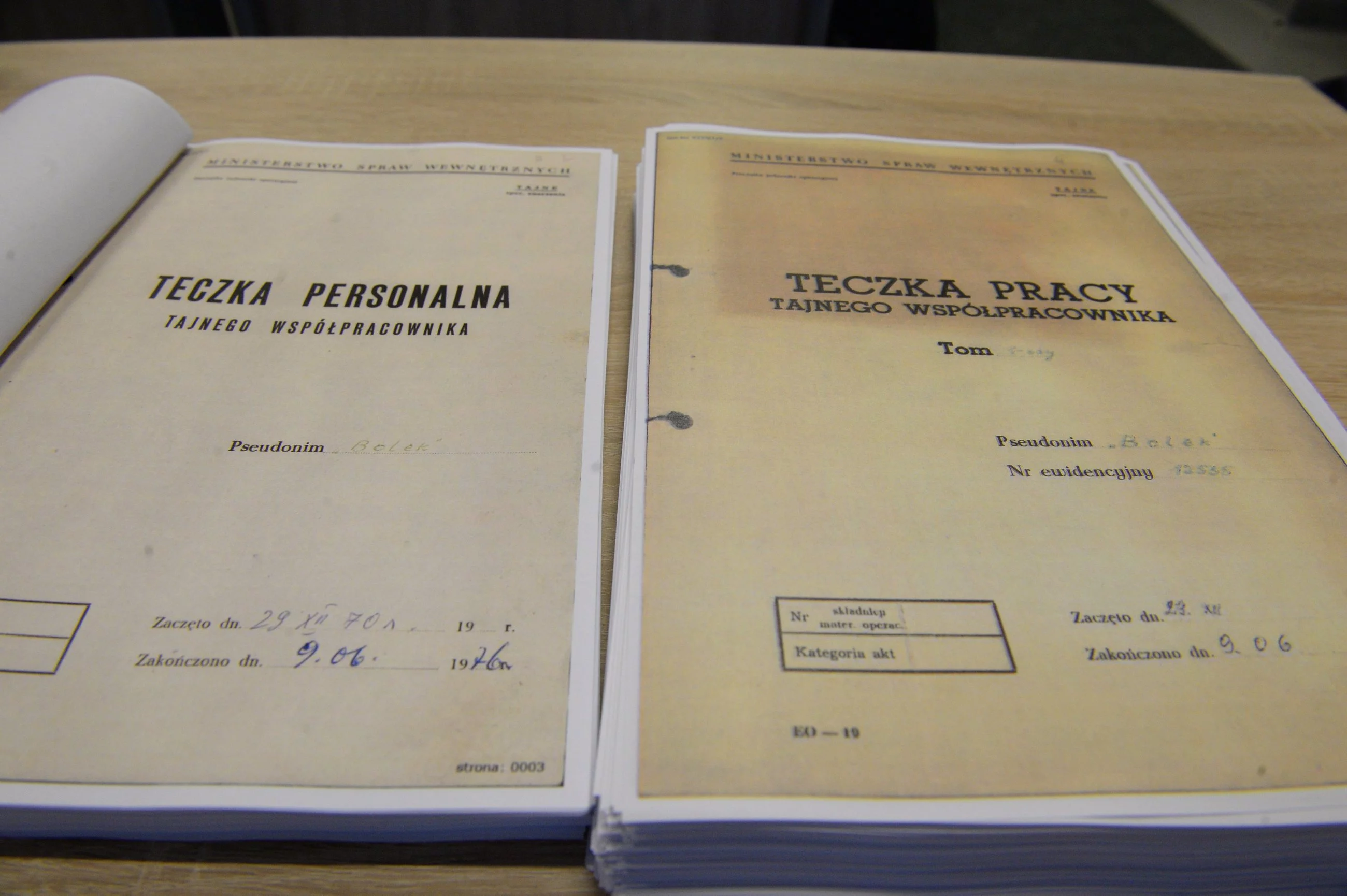Description of the facts
By judgement of 30.1.2023, in Case III K 213/17, the territory Court of P. found the suspect T. G. for the criminal offence referred to in Article 286(1) of the KK, Article 297(1) of the KK, Article 271(1) of the KK and Article 270(1) of the KK in conjunction with Article 11(2) of the KK and Article 12 of the KK and sentenced him to 2 years imprisonment and 200 regular units of fines, at the rate of 1 rate per 40 PLN. The execution of the conviction was conditionally suspended for a period of 5 years as a sample.
This judgement was contested by the prosecutor and the defendants. In the course of the appeal proceedings, procedural papers were sent to the file in which the defendant's defences pointed to the existence of a breach of Article 439(1)(11) of the NCP.
Following the examination of the appeals brought against the judgement of the Court of First Instance, the territory Court of P. in Case IV Ka 774/23, annulled the judgement under Article 439(1)(11) of the CRS and referred the case to the Court of First Instance for review.
A complaint against the cassatory judgement was brought by the prosecutor and accused him of violating Article 437(2) of the NCP by misconception that there was a condition under Article 439(1)(11) of the NCP in the proceedings.
In his written position in relation to the complaint, the suspect requested that it be dismissed.
The ultimate Court, after examining the prosecutor’s action, annulled the contested judgement and referred the case to the territory Court of P. for review in appeal proceedings.
Reasons for SN
According to the ultimate Court, the complaint is well founded.
In the message of reasons for the resolution of the ultimate Court of 25.1.2018, I KZP 13/17, Legalis, it was clearly stated that: in the event of a complaint against a breach of Article 437(2) of the NCP in conjunction with Article 439(1) of the NCP, the review of the application requires an assessment of whether there was indeed a breach of the absolute origin of the appeal, and not only whether it was indicated as a basis for the annulment of the judgement and the transfer of the case for review. This means examining indirectly the correctness of the judgement of the first instance. The deficiencies referred to in Article 439(1) of the NCP may be established by an appeal court of its own motion and on grounds of appeal (Article 433(1) of the NCP). In the second case, the review of the infringement procedure of Article 437(2) of the NCP in conjunction with Article 439(1) of the NCP will, by its essence, concern the appropriateness of taking into account the plea of appeal. However, this is not a review of the substantive examination of the case, but a review of whether the judgement of the first instance is affected by the failure referred to in Article 439(1) of the NCP.
In doing so, it must be pointed out in the first instance that, according to the appeal court, the Court of First Instance had wrongly assessed the fact that the Court of First Instance (by the same justice who issued the order of compulsory attendance of the suspect at the proceeding in 2017) had to proceed to hold the proceeding on 30.1.2023, despite the defendant's absence. This order was formally issued on the basis of Article 376(2) of the NCP, but it is besides clear from it that the court meriti did not see the grounds for continuing to consider the defendant's presence compulsory at the trial. If the suspect were to be held by the court as compulsory, then the issuing of a decision pursuant to Article 376 §2 of the NCP – which, in terms of the consequences of the defendant's non-contribution, erstwhile the suspect has already provided explanations and has not appeared without justification for the hearing, would mention to the appropriate application of Article 376 §1 of the NCP – would consequence in the request to order the detention and forced enforcement of the accused (Article 376 §1 of the second NCP). specified a decision would be a clear procedural signal that despite the wrong-doing – in the judgement of the court meriti – the defendant's presence is inactive considered compulsory.
Whether the court of first instance correctly assessed the defendant’s absence at the proceeding on 30.1.2023 as not justified, it was the decision to proceed with the trial in the absence of the suspect pursuant to Article 376(2) of the NCP, in the arrangement where the compulsory presence of the accused resulted not from a provision of the law, but from an own decision taken by the court (Article 374(1)). in fine The NCP) was to change the decision on the compulsory presence of the suspect at the trial and thus to recognise that the court did not consider his presence at the proceeding as compulsory.
It must be borne in head that the order of mandatory presence of the accused resulted from the designation that his explanations were contrary to the evidence of any witnesses and aimed at verifying these discrepancies in the presence of the accused. The Court of First Instance was full entitled to amend specified a decision in the course of further procedural proceedings, especially where no procedural action had been carried out in which specified discrepancies arose. If the court would proceed to treat the presence as essential and compulsory, it would apply detention and forced transportation (Article 376 §2 of the NCP in conjunction with Article 376 §1 of the second NCP).
In conclusion, since the order of 30.1.2023 to conduct a proceeding in the absence of the accused, there has been a change of opinion of the court. meriti As regards the nature of the defendant's presence at the proceeding and since there were no conditions for the statutory compulsory presence of the accused at the proceeding (Article 374 § 1a of the NCP), Article 439 § 1(11) of the NCP could not be infringed. Therefore, only this fact constitutes the merits of the action, although the applicant did not see this aspect of the order. Otherwise, the situation would have been if the defendant's compulsory presence had been a consequence of a bill (e.g. a criminal charge) and the court in the course of proceedings in breach of the conditions set out in Article 376(2) of the NCP had carried out evidence activities in the absence of the accused. In specified a situation, the fact that the proceeding was conducted on the basis of Article 376 §2 of the NCP, in violation of the conditions of that provision, could not alter the nature of the defendant's compulsory presence, as it was the consequence of the law and not the decision of the court.
On the another hand, in view of the fact that this fact is of no importance for the result of the action, it must be pointed out that the denial — and in general — by the court of the second instance of the law of the court meriti to declare a medical certificate issued by an authorised medical examiner (justifying the absence of the suspect at a court trial) insufficient to consider absence to be justified (in fact, designation of the certificate as unreliable) is missed. It's the court. meriti he utilized 2 expert opinions in his assessment, and from each of these opinions it was apparent that the suspect could have taken part in the trial at the date of the applicable examinations. 1 expert's objection that the assessment of the anticipation of the defendant's participation in a court of law, in view of possible exacerbations of the symptoms of the disease, should be made by a medical examiner, in the event that specified assessment was carried out by a doctor on 26.1.2023 (4 days prior to the hearing), gave the court the full right to believe that, since the medical certificate is the same as the medical units for which they spoke, the expert's opinion allows the paper to be denied in the form of a medical certificate.
Comment
Against the background of the case in question, there is simply a clear claim that the Prosecutor was right in expressing the view that there was no breach of Article 439(1)(11) of the NAP in the course of the proceedings. It is worth noting that, in the action proceedings, the ultimate Court cannot control the specified method (accuracy) of the examination of the pleas of appeal by the appeal court, which leads to the annulment of the judgement under appeal of the court of first instance, in order to qualify by the appeal court a peculiar failure which is at the disposal of Article 439(1) of the NCP, The ultimate Court has a work to check whether the classification of the failure was correct, as the effect of this failure can only be cassatory. Consequently, the ultimate Court rightly acknowledged the merits of the prosecutor's complaint.
















